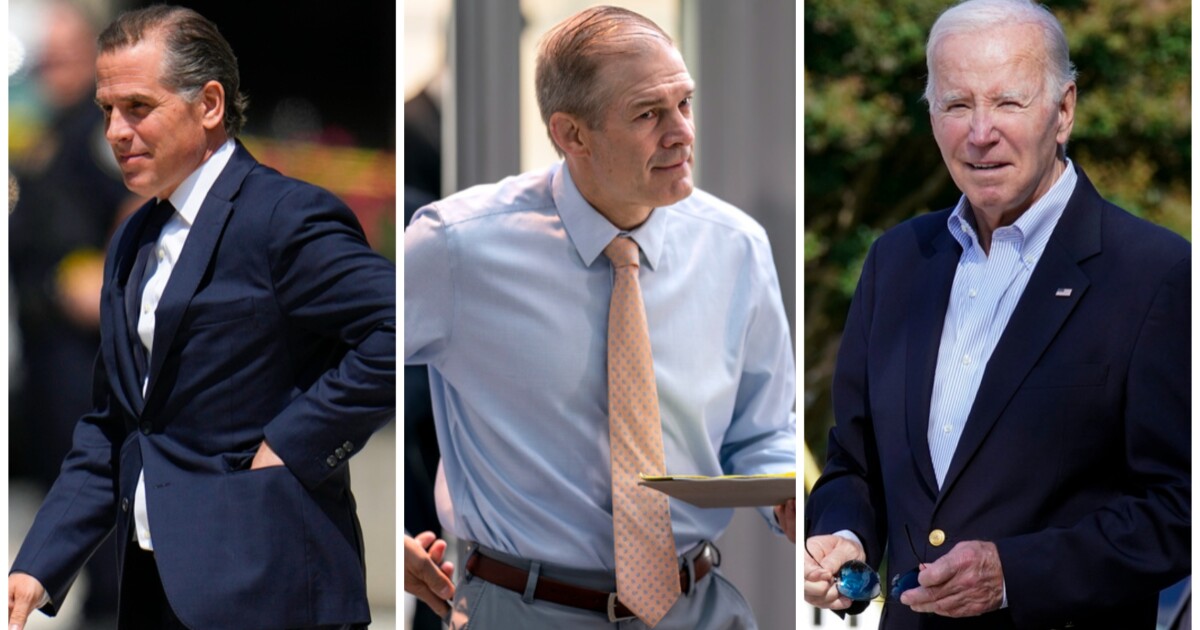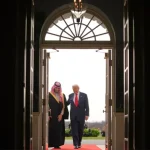

Judiciary Chairman Jim Jordan (R-OH) is pressing the Justice Department to make lead prosecutors available for private interviews as part of the House GOP’s investigations into Hunter Biden’s business dealings, specifically requesting meetings with at least 11 officials involved in the matter.
Jordan pointed to conflicting testimony given by the Biden administration compared to FBI and IRS whistleblowers such as Gary Shapley and Joseph Ziegler, arguing there are crucial questions left to be answered to determine whether President Joe Biden improperly involved himself in his son’s business matters. The Ohio Republican specifically cited claims from Hunter Biden associate Devon Archer, who testified earlier this week that President Biden was present for some business phone calls despite the White House previously denying those claims.
BIDEN AND REPUBLICANS DUKE IT OUT TO DEFINE THE ECONOMY
“We got these differing stories coming from the White House regarding the business, from the Justice Department regarding the handling of the Hunter Biden case,” Jordan told the John Solomon Reports podcast last week. “And the ones that have ever been consistent, and I think credible, incredibly credible, are the are the stories, the testimony from Mr. Shapley and Mr. Ziegler, the two IRS whistleblowers, and their story has been confirmed by an FBI agent as well, who was deposed by the Oversight Committee.”
Jordan outlined a number of questions the Judiciary Committee would seek to answer as part of its investigation, homing in on the DOJ while investigating Hunter Biden for tax evasion and other business dealings.
What did the DOJ do about the tip sheet connecting Joe Biden to a $5 million bribe?
Among those questions includes whether David Weiss or other FBI investigators thoroughly examined allegations made in an FD-1023 report in June 2020 that Burisma Holdings was forced into making a $10 million bribe to the Biden family to remove a Ukrainian prosecutor from investigating the energy company for alleged corruption.
Republicans in Congress began agitating for information about the sheet and its allegations since May. Last month, Sen. Chuck Grassley (R-IA) obtained and released a lightly redacted copy of the form detailing testimony by an informant accusing both Hunter and Joe Biden of accepting millions of dollars from the head of Burisma.
The form is used by the FBI to record “raw, unverified” information.
What other information does the FBI have?
Jordan said he also wants to press the FBI on whether the agency sought alleged audio tapes or other evidence that Burisma officials claimed to have that could incriminate the Bidens for foreign influence peddling.
Those questions come after Archer testified behind closed doors that although Burisma officials pressed Hunter Biden to use “whatever influence he had” through his father, it was all merely an “illusion.”
“He had no actual influence,” Archer said. “The witness was clear about that.”
Did prosecutors and the DOJ interfere with IRS and FBI investigations?
Jordan is also seeking to determine whether Weiss’s office sought to block IRS and FBI agents from asking questions about Joe Biden during their investigation of his son, blocking investigators from executing search warrants on properties where Hunter Biden may have kept evidence central to the case.
That question stems from contradictory statements coming from Weiss and a pair of IRS whistleblowers, who told lawmakers the DOJ purposely slow-walked elements of the Hunter Biden investigation. The department did so by blocking access to the full contents of Hunter Biden’s laptop, stopping the IRS from interviewing Hunter Biden himself, and preventing investigators from asking witnesses about messages that mentioned President Joe Biden, they claimed.
The whistleblowers testified that Weiss told them he was limited in the actions he could take against Hunter Biden during the course of the investigation, blocking him from pressing charges against the president’s son. However, Weiss later denied those claims, noting he had total independence in the investigation and would receive approval for any charging decision he wanted to make.
Those contradictions, along with other claims, prompted Jordan to press for the DOJ to make Weiss available for an interview with lawmakers. Attorney General Merrick Garland offered to make Weiss available for public testimony with limited questions last month, but Jordan rejected the offer as inadequate.
CLICK HERE TO READ MORE FROM THE WASHINGTON EXAMINER
Instead, the Judiciary chairman said he would move forward with requesting additional testimony and documents related to the investigation.
“We had 11 people that we wanted to talk to, and the Justice Department says we’ll make Mr. Weiss available for public testimony,” he told John Solomon. “But we think it’s important that we talk to some of these people in a private interview setting prior to any type of public hearing.”






